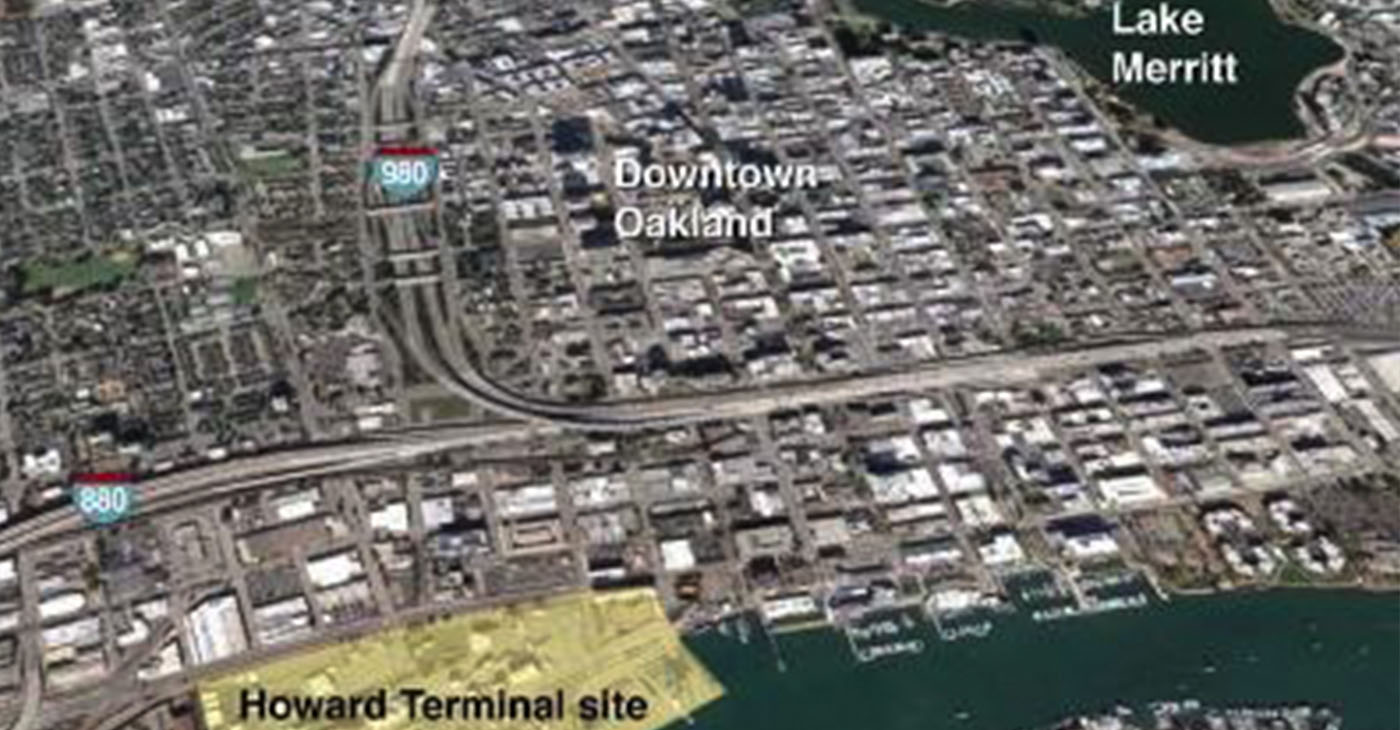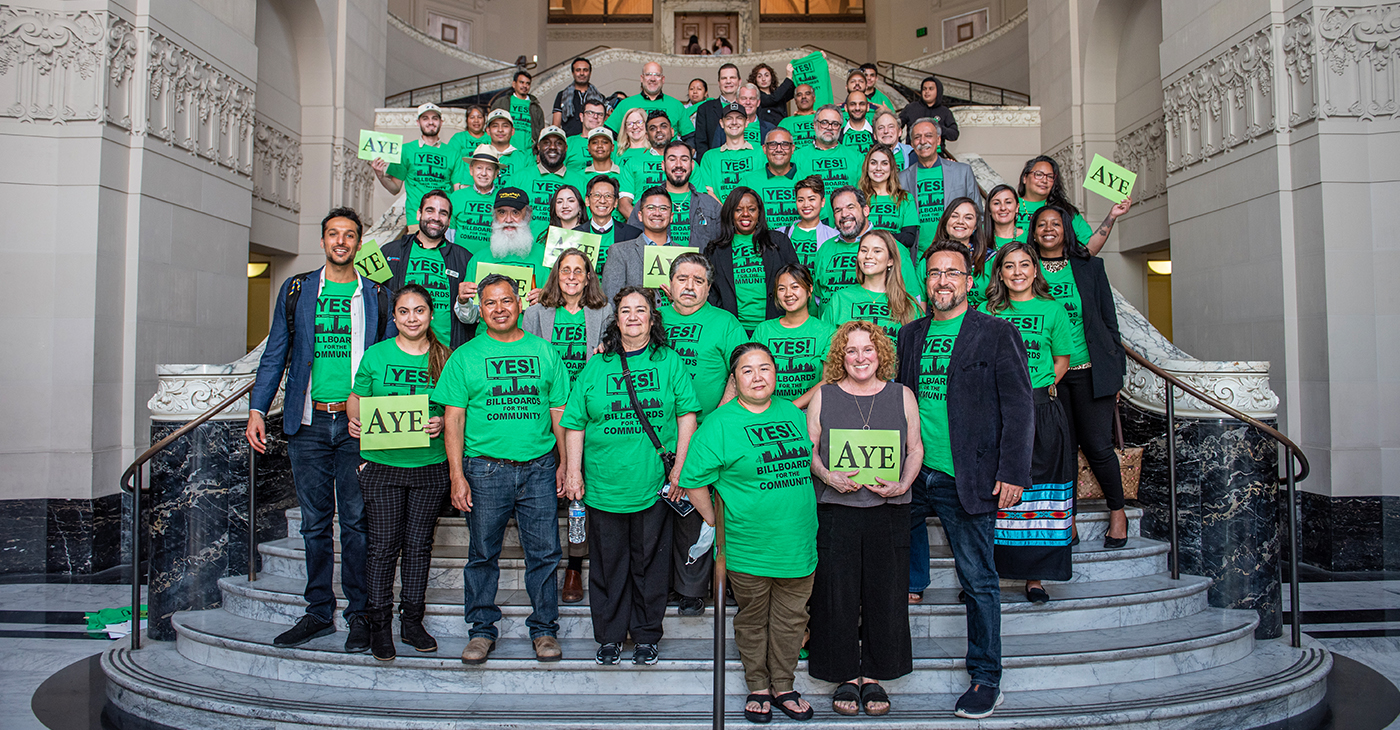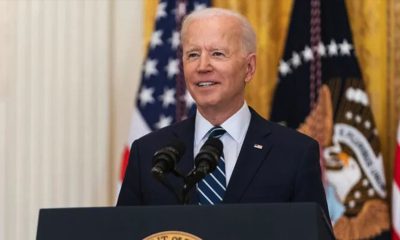Activism
OPINION: Review by Planning Commission on Jan. 19 does not give citizens enough time to review
Oaklanders said they did not want this development to be built at the Port because the Port is Oakland’s biggest economic asset, and Port businesses will be harmed by having luxury residences adjacent to a 24/7 working seaport. The city staff report essentially says this will not be figured out in environmental impact. Both Port businesses and the most affected union workers say they will be harmed. And, while there have been some conversations between Port representatives and Port businesses, the issues raised have not been resolved.

In Pre-Christmas Surprise, Oakland Mayor, City Staff Quietly Release 3,500 Page Report on Port Stadium Project
By Kitty Kelly Epstein
Six days before Christmas, Oakland City staff issued a 3,500-page document on billionaire John Fisher’s luxury housing project at Howard Terminal and scheduled a vote on it by the Planning Commission three weeks after Christmas.
Obviously, few of us can read 3,500 pages in that amount of time. So, the mayor and city staff who work for her have made it pretty clear that they don’t care whether the public has meaningful input.
I’m one of the people who can’t read 3,500 pages in a couple of days. So, in this column I simply point out a very few of the issues raised by 400 Oakland residents who critiqued Fisher’s real estate development on Port land and that are still not solved. Read the report here: www.oaklandca.gov/documents/response-to-comments-final-eir-for-the-oakland-as-waterfront-ballpark-district-project-chapters-and-appendices. Oaklanders said they did not want to have thousands of people running across busy Southern Pacific railroad tracks every time a ball game is played at the proposed stadium, because people already die crossing those tracks, and the numbers would likely increase. There are no realistic new solutions to this problem proposed. One overcrossing is proposed, which is completely insufficient (p. 4-8 and 7-3).
Oaklanders said they did not want this development to be built at the Port because the Port is Oakland’s biggest economic asset, and Port businesses will be harmed by having luxury residences adjacent to a 24/7 working seaport. The city staff report essentially says this will not be figured out in environmental impact. Both Port businesses and the most affected union workers say they will be harmed. And, while there have been some conversations between Port representatives and Port businesses, the issues raised have not been resolved (p. 4-9 and 4-13).
Oaklanders said the project would create massive traffic and parking problems, particularly for the residents of West Oakland. The document essentially agrees that these problems are real but says that the city has fulfilled its responsibility under the law by acknowledging the problems (4-184). And I can find nowhere else in the report that the tiny number of parking spaces provided by the project has in any way been realistically mitigated in its effect on West Oakland parking and traffic given the thousands of new residents, workers, and game attendees involved.
Most important of all, perhaps, is the fact that Oaklanders do not want to pay for the project with public funds. The city says it is paying $350 million of infrastructure with state, federal, and regional transportation dollars.
Those are tax dollars, and nobody in Oakland decided that’s how we would want $350 million in transportation funds to be spent. Most of our residents (and the planet) need for us to have expanded, excellent, cheap, fast public transportation more than we need to help a billionaire with infrastructure funding for his private project.
There is an additional proposed financing plan for this project that also involves public funding. While not addressed in the Environmental Impact Report (EIR), it certainly has an ‘environmental’ impact on those of us who are not rich and whose quality of life is impacted by the ways that our public property and funding is used.
And there is a lot of research on the impact of stadiums on the local economy. One, by Stanford economist Roger Null, for example, says that “sports stadiums do not generate significant economic growth” (https://news.stanford.edu/2015/07/30/stadium-economics-noll-073015/). And he isn’t even discussing a project like Oakland’s which will actually harm the local economy by hurting Port business.
So why is this project still being discussed at all? It will harm current residents in a dozen different ways. Essentially, this deal creates an exclusive enclave, a new Piedmont, in the center of Oakland on our publicly owned Port property that we will pay for decades. Although no one has asked Oakland residents directly what we think, my impression is that a majority of residents would not support it, given the public costs, the damage to the Port, and the displacement caused to current residents.
Activism
Oakland Post: Week of July 24 – 30, 2024
The printed Weekly Edition of the Oakland Post: Week of July 24 – 30, 2024

To enlarge your view of this issue, use the slider, magnifying glass icon or full page icon in the lower right corner of the browser window. ![]()
Activism
Oakland Post: Week of July 17 -23, 2024
The printed Weekly Edition of the Oakland Post: Week of July 17 -23, 2024

To enlarge your view of this issue, use the slider, magnifying glass icon or full page icon in the lower right corner of the browser window. ![]()
Activism
Community Celebrates Historic Oakland Billboard Agreements
We, the Oakland Billboard Economic Development Coalition, which includes Oakland’s six leading community health clinics, all ethnic chambers of commerce, and top community-based economic development organizations – celebrate the historic billboard agreements approved last year by the Oakland City Council. We have fought for this opportunity against the billboard monopoly, against Clear Channel, for five years. The agreements approved by Council set the bar for community benefits – nearly $70 Million over their lifetime, more than 23 times the total paid by all previous Clear Channel relocation agreements in Oakland combined.

Grand Jury Report Incorrect – Council & Community Benefit
We, the Oakland Billboard Economic Development Coalition, which includes Oakland’s six leading community health clinics, all ethnic chambers of commerce, and top community-based economic development organizations – celebrate the historic billboard agreements approved last year by the Oakland City Council. We have fought for this opportunity against the billboard monopoly, against Clear Channel, for five years. The agreements approved by Council set the bar for community benefits – nearly $70 Million over their lifetime, more than 23 times the total paid by all previous Clear Channel relocation agreements in Oakland combined.
Unfortunately, a recent flawed Grand Jury report got it wrong, so we feel compelled to correct the record:
- Regarding the claim that the decision was made hastily, the report itself belies that claim. The process was five years in the making, with two and a half years from the first City Council hearing to the final vote. Along the way, as the report describes, there were multiple Planning Commission hearings, public stakeholder outreach meetings, a Council Committee meeting, and then a vote by the full Council. Not only was this not hasty, it had far more scrutiny than any of the previous relocation agreements approved by the City with Clear Channel, all of which provide 1/23 of the benefits of the Becker/OFI agreements approved by the Council.
- More importantly, the agreements will actually bring millions to the City and community, nearly $70M to be exact, 23 times the previous Clear Channel relocation agreements combined. They certainly will not cost the city money, especially since nothing would have been on the table at all if our Coalition had not been fighting for it. Right before the decisive City Council Committee hearing, in the final weeks before the full Council vote, there was a hastily submitted last-minute “proposal” by Clear Channel that was debunked as based on non-legal and non-economically viable sites, and relying entirely on the endorsement of a consultant that boasts Clear Channel as their biggest client and whose decisions map to Clear Channel’s monopolistic interests all over the country. Some City staff believed these unrealistic numbers based on false premises, and, since they only interviewed City staff, the Grand Jury report reiterated this misinformation, but it was just part of Clear Channel’s tried and true monopolistic practices of seeking to derail agreements that actually set the new standard for billboard community benefits. Furthermore, our proposals are not mutually exclusive – if Clear Channel’s proposal was real, why had they not brought it forward previously? Why have they not brought it forward since? Because it was not a real proposal – it was nothing but smoke and mirrors, as the Clear Channel’s former Vice President stated publicly at Council.
Speaking on behalf of the community health clinics that are the primary beneficiaries of the billboard funding, La Clinica de la Raza CEO Jane Garcia, states: “In this case, the City Council did the right thing – listening to the community that fought for five years to create this opportunity that is offering the City and community more than twenty times what previous billboard relocation agreements have offered.”
Oakland Billboard Economic Development Coalition
| Native American Health Center | La Clínica de la Raza | West Oakland Health Center |
| Asian Health Services | Oakland LGBTQ Center | Roots Community Health Center |
| The Unity Council | Black Cultural Zone | Visit Oakland |
| Oakland African American Chamber of Commerce | Oakland Chinatown Chamber of Commerce | Oakland Vietnamese Chamber of Commerce |
| Oakland Latino Chamber of Commerce | Building Trades of Alameda County | (partial list) |
-

 Arts and Culture3 weeks ago
Arts and Culture3 weeks agoRooted in Tradition: The Intricate History of Black Hair Braiding
-

 Bay Area4 weeks ago
Bay Area4 weeks ago“I Will Not Be Bullied,” Says Oakland Mayor Sheng Thao
-

 Bay Area2 weeks ago
Bay Area2 weeks agoPG&E Increases Rates While Bay Area Households Are Struggling to Stay Afloat
-

 Business3 weeks ago
Business3 weeks agoGov Newsom: Raising Fast Food Minimum Wage to $20 Pays Off as Jobs Multiply in Industry
-

 Activism4 weeks ago
Activism4 weeks agoOpponents of Mayor Sheng Thao Are Calling on Her to Resign Following FBI Raid
-

 Community1 week ago
Community1 week agoHundreds Come to Jehovah’s Witnesses’ Assembly Hall for Three-Day Program of ‘Good News’ in Fremont
-

 Bay Area2 weeks ago
Bay Area2 weeks agoJuneteenth Mass Shooting Suspect Charge with Multiple Counts of Felony Assault by Alameda County DA Pamela Price
-

 Activism4 weeks ago
Activism4 weeks agoOakland Coliseum Sale to AASEG: A Model for Community Development and Inclusion






















































